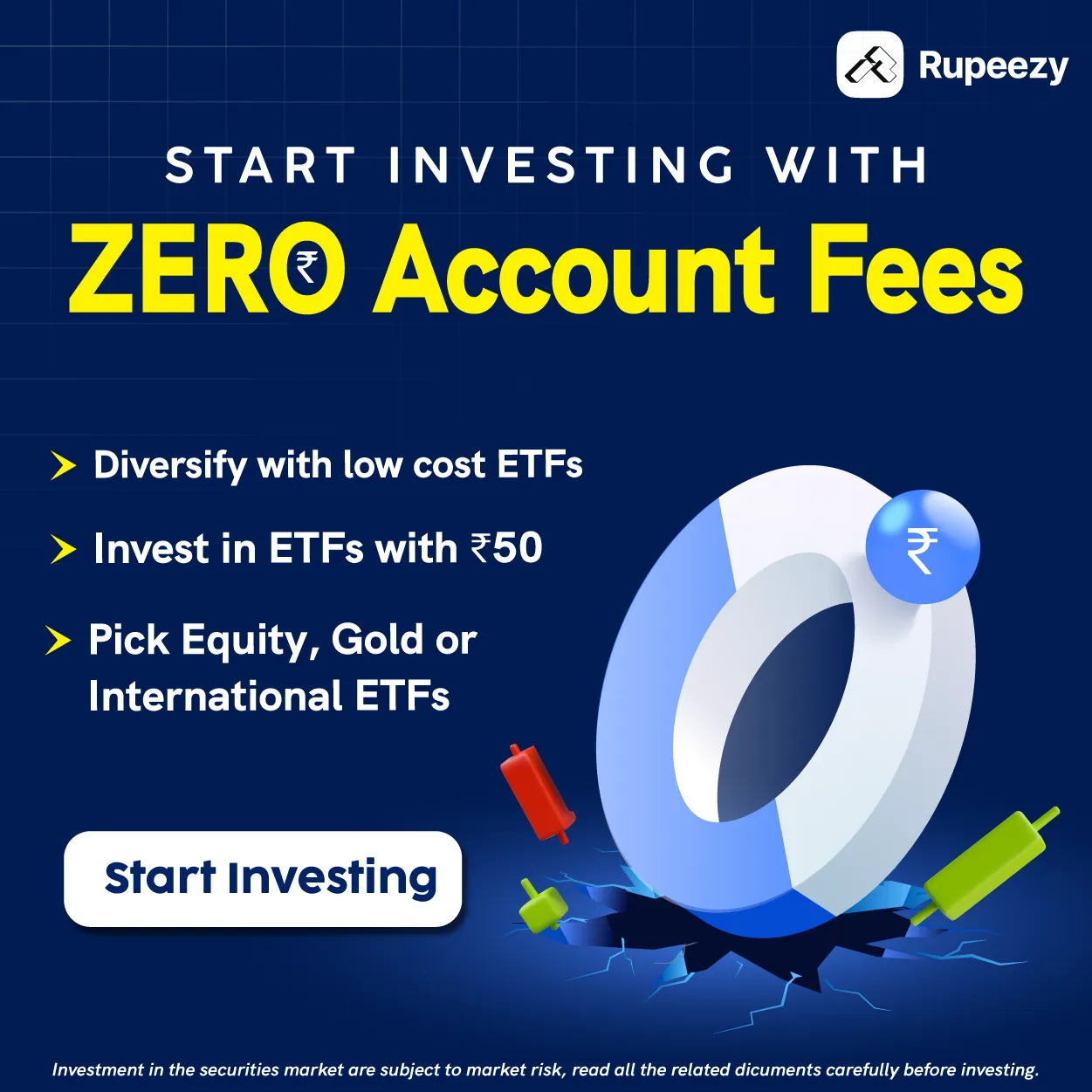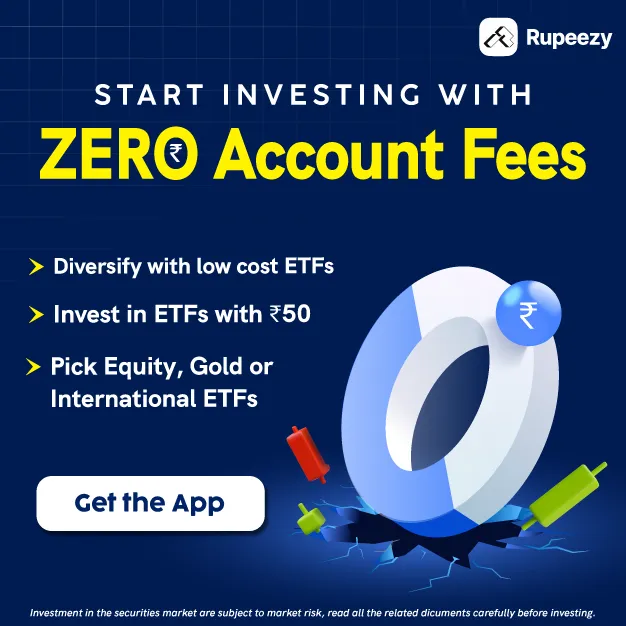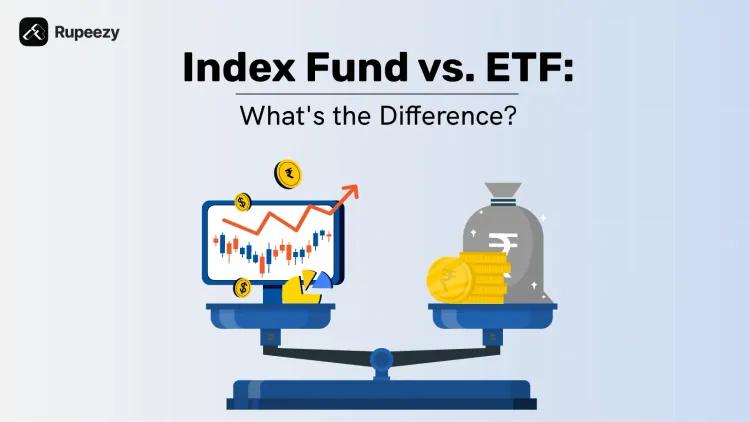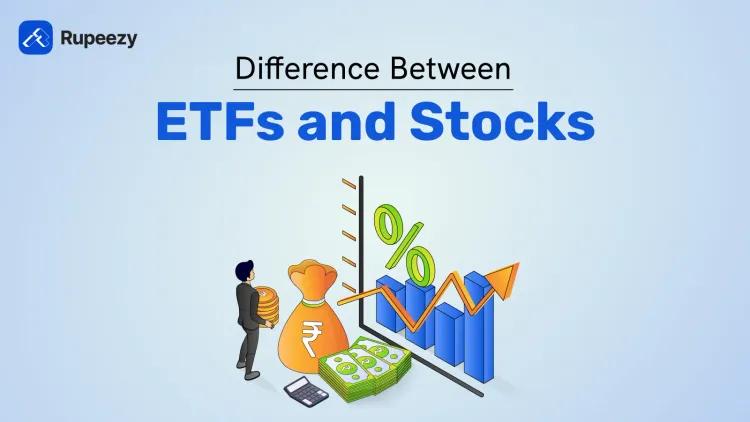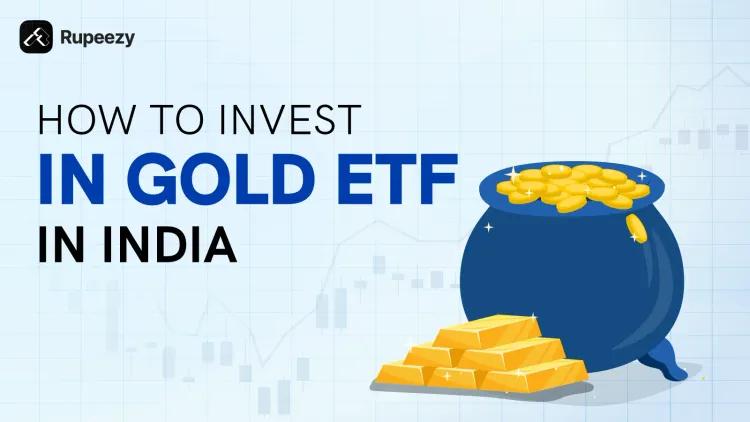Exchange Traded Commodities - Meaning, Types, Benefits


00:00 / 00:00
Have you ever considered how people invest in commodities such as metals, pulses, oil, and other raw materials without purchasing or storing them physically? That is where Exchange Traded Commodities (ETCs) come into play. A Commodity Exchange that allows investors to easily purchase commodities in the same way that they would buy stock from their devices. ETCs are financial securities traded on stock exchanges that track commodity prices such as gold, silver, crude oil, and agricultural goods.
Let’s explore what an Exchange-Traded Commodity (ETC) is, the types of commodities you can trade, the key benefits and risks, and how to start investing to meet your financial goals.
What are Exchange-Traded Commodities?
Exchange Traded Commodities (ETCs) are a type of debt financial instrument that allows investors to trade commodities such as metals, agricultural products, crude oils, and pulses on stock exchanges. Unlike ETFs (exchange-traded funds), which allow investors to trade baskets of commodities, an exchange-traded commodity (ETC) focuses on a single asset or a specific commodity exchange, enabling investors to participate in commodities trading by investing in individual commodities and precious metals without the need for physical storage or ownership
List of Exchange Traded Commodities
The list of commodities traded on exchange-traded commodities is displayed in the table below:
Sr. No. | Commodities List |
1. | Metals like zinc, aluminum, copper, lead, brass |
2. | Gold and Silver |
3. | Energy sources like natural gas and oil. |
4. | Spices including cumin, coriander, pepper, and turmeric |
5. | Livestock like feeder animals, pork bellies, and live cattle. |
6. | Cereals, pulses, and grains include wheat, barley, maize, and rice. |
7. | Oil and oilseeds (castor, palm, cottonseed, and soybean oil) |
8. | Soybean |
9. | Cotton |
10. | Sugar |
Types of Exchange Traded Commodities in India
Here are two types of exchange-traded commodities in India:
1. Physical ETCs
Physical ETCs are a type of exchange-traded commodity (ETC) that is backed by actual commodities. Precious metals like Gold, Platinum, and silver are physically secured and show the spot price of the commodity transaction. For instance, actual gold bars are kept in the treasury of the trustee as security for physically secured gold, etc. Hence, removing the issuer risk when it comes to physical ETC. Apart from the precious metals, some industry metals like nickel and copper, ETCs, are also backed physically.
2. Synthetic ETCs
The financial or synthetic commodity market is not directly associated with commodity trading but rather with derivative contracts like futures and swaps, whose underlying assets are commodities. Unlike physical ETCs, they do not involve direct exchange of commodities. Instead, these instruments are used for hedging, speculation, and portfolio diversification. Some commonly traded synthetic ETCs are gold, crude oil, base metals, and agricultural products.
Benefits of Investing in Exchange Traded Commodities
Some of the potential benefits that an investor can get when investing in ETCs (Exchange Traded Commodities):
Diversification - As of 2003, large investors could access the commodities market, with relatively high minimum investment requirements. After ETCs were introduced, etc investment has made it possible even for small investors to access commodities through platforms like the multi-commodity exchange, helping them diversify their portfolios across asset classes, sectors, and regions, and enhance overall portfolio performance.
Minimise risk – ETC, as a debt instrument, is thought to be relatively risk-free. This is because companies that provide ETC with valuable collateral (such as gold or other safe investments) will protect investors. If the company fails to repay the investors, they can still recover their money by selling the collateral.
No Logistics – Investors holding ETC shares do not need to worry about storing them because they are not purchased and held physically.
Lower expenses - ETC has lower management fees or expense ratios than actively managed funds because it is passively managed by a fund manager.
Risks or Limitations of Exchange Traded Commodities
While Exchange Traded Commodities offer several benefits, they also come with risks that investors should consider. Below are some of the key risks:
Market fluctuations – Commodity prices fluctuate due to a variety of factors such as demand and supply, economic conditions, natural disasters, and geopolitics, and investors may lose money if the commodity price falls below their purchase price.
Compliance Risk – ETCs are subject to stock exchange rules and regulations, which are subject to change from time to time. These changes may have an impact on the ETCs' performance, availability, liquidity, and taxation.
Problem with tracking – ETCs may not reliably monitor the performance of the commodities for a variety of reasons, including fees, costs, liquidity, etc. Investors can see a difference between the ETC returns and the actual returns of the commodity.
Counterparty Risk – Synthetic ETCs rely on derivatives contracts with counterparties who have the responsibility of monitoring the commodities' performance. Investors risk losing their money if the counterparty defaults on its commitments.
Exchange Traded Commodity vs Exchange Traded Fund
The table shows the differences between exchange-traded commodities (ETCs) and exchange-traded funds (ETFs):
Aspects | ETCs (exchange-traded commodities) | ETFs (exchange-traded funds) |
Meaning | It is a type of financial instrument where investors can use exchanges to purchase commodities like metals, agricultural goods, or crude oil. | It is an investment fund that holds multiple underlying assets and can be bought and sold on an exchange, much like an individual stock. |
Structure | It is a form of debt instrument that includes collateral. | It is a mutual fund that retains underlying assets for a long period. |
Regulatory body | ETCs are regulated by SEBI in India, and the Commodity Derivatives Market Regulation Department (CDMRD) oversees daily operations in the commodity market. | ETFs are regulated by SEBI in India with the aim of protecting the interests of investors. |
Example | MCX (Multi Commodity Exchange), NCDEX (National Commodity and Derivatives Exchange), NMCE (National Multi-Commodity Exchange) | Index ETFs, gold ETFs, thematic ETFs, and debt ETFs are some top ETFs available in India. |
Underlying Asset | These underlying assets can include single commodities or baskets of commodities, such as livestock, metals, and energy markets. | ETFs' underlying assets include stocks, bonds, currencies, debt, futures contracts, and/or commodities like gold bars. |
Exchange-Traded Commodities vs Direct Commodity Investing
The table shows how exchange-traded commodities are different from direct commodity investing:
Aspects | Exchange-Traded Commodities | Direct Commodity Trading |
Meaning | A debt instrument that allows investors to trade and invest in commodities like oil, gas, gold, silver, and wheat without physically purchasing the underlying assets. | These are physical assets (gold, silver, crude oil) or future contracts requiring future delivery, and investors can buy and hold the actual commodity. |
Ownership | In this case, investors own the instrument rather than the physical commodity. | Investors own the physical commodity. |
Purpose | It is suited for inflation hedging, easy exposure, and short-term trading | It is suitable for experienced traders, physical ownership, and long-term investment |
Liquidity | Highly liquidated | Physical assets have low liquidity. |
Risk involved | Tracking error, counterparty risk, etc. | Price fluctuation may cause investors to lose tangible assets. |
Who Should Consider Exchange Traded Commodities (ETCs)?
The list below shows who can consider investing in ETCs:
Those small investors are looking to diversify and improve their portfolio performance with a low investment requirement.
When an investor wants to hedge against inflation, they can invest in commodities like gold, silver.
Traders accustomed to stock-like liquidity, looking for flexible access to commodities
How to Invest in Exchange Traded Commodities?
The following steps should be followed to invest in ETCs:-
Step 1: Begin by opening a trading account with a SEBI-listed broker that offers commodity trading. To enable the commodities trading option, fill out an additional form after opening the account.
Step 2: You must maintain an adequate balance in your commodity trading account. The margin amounts differ between standard and MIS trading. The margin is lowest in the case of covered orders.
Step 3: The next stage is to create a shortlist of commodities that you want to trade. The chosen commodities can be pinned to the watch list for quick monitoring.
Step 4: After picking the commodities, an order is placed for the shortlisted commodities, and a trading method is selected. Trades are carried out using either a limit or market order.
Step 5: The next step is to see if the order was placed or not. This can be accomplished by reviewing the order book. To access the order book, click on the orders tab, where all orders can be viewed.
Step 6: The next stage is to closely monitor the position of the commodities and make modifications as needed.
Sometimes, major commodity price movements, like a sudden surge in crude oil or metals, also impact the stocks of companies operating in those sectors. Many traders use Margin Trading Facility to take larger positions in such stocks by paying only a portion of the trade value, while the broker funds the rest. Although MTF isn’t used for buying ETCs directly, it provides an additional way to benefit from commodity-linked trends. However, the leverage involved makes disciplined position sizing and risk control extremely important.
Future of ETCs in India
With rising investor interest, regulatory support, and technological growth, ETCs in India are set for rapid evolution. Here’s what could shape their future:
Growing Energy Commodities: It is anticipated that India's growing energy requirements will increase demand for energy commodities such as natural gas, crude oil, and renewable energy sources. Government initiatives supporting renewable energy will also be very important.
Confirmation with the Global Market: The commodity trading industry is anticipated to get more advanced and conform to international norms as India's integration with international markets develops. Increased foreign investment will raise liquidity levels.
Agricultural Commodity Growth: India is one of the top producers of agricultural goods in the world. Government initiatives and advancements in agricultural technology are expected to boost the demand for agri commodity segments, leading to greater participation in etc commodities and expanding the overall agricultural market.
Enhanced Risk Management Tools: With technological advancements, traders will have access to more sophisticated risk management tools. Al and ML will enable better prediction of market trends and more effective strategies to mitigate risks.
Conclusion
ETCs are a great alternative for people looking to diversify their investments, save on storage costs, and benefit from commodity price swings. ETCs have a bright future in India because of the rising demand for gold, oil, and food, as well as improved technology and regulations. However, it is vital to note that ETCs are not without hazards, such as price changes, regulatory revisions, and reliance on third parties. So, before investing, one needs to understand how they work and make wise decisions.
Check Out These Related Articles |
The content on this blog is for educational purposes only and should not be considered investment advice. While we strive for accuracy, some information may contain errors or delays in updates.
Mentions of stocks or investment products are solely for informational purposes and do not constitute recommendations. Investors should conduct their own research before making any decisions.
Investing in financial markets are subject to market risks, and past performance does not guarantee future results. It is advisable to consult a qualified financial professional, review official documents, and verify information independently before making investment decisions.

All Category

